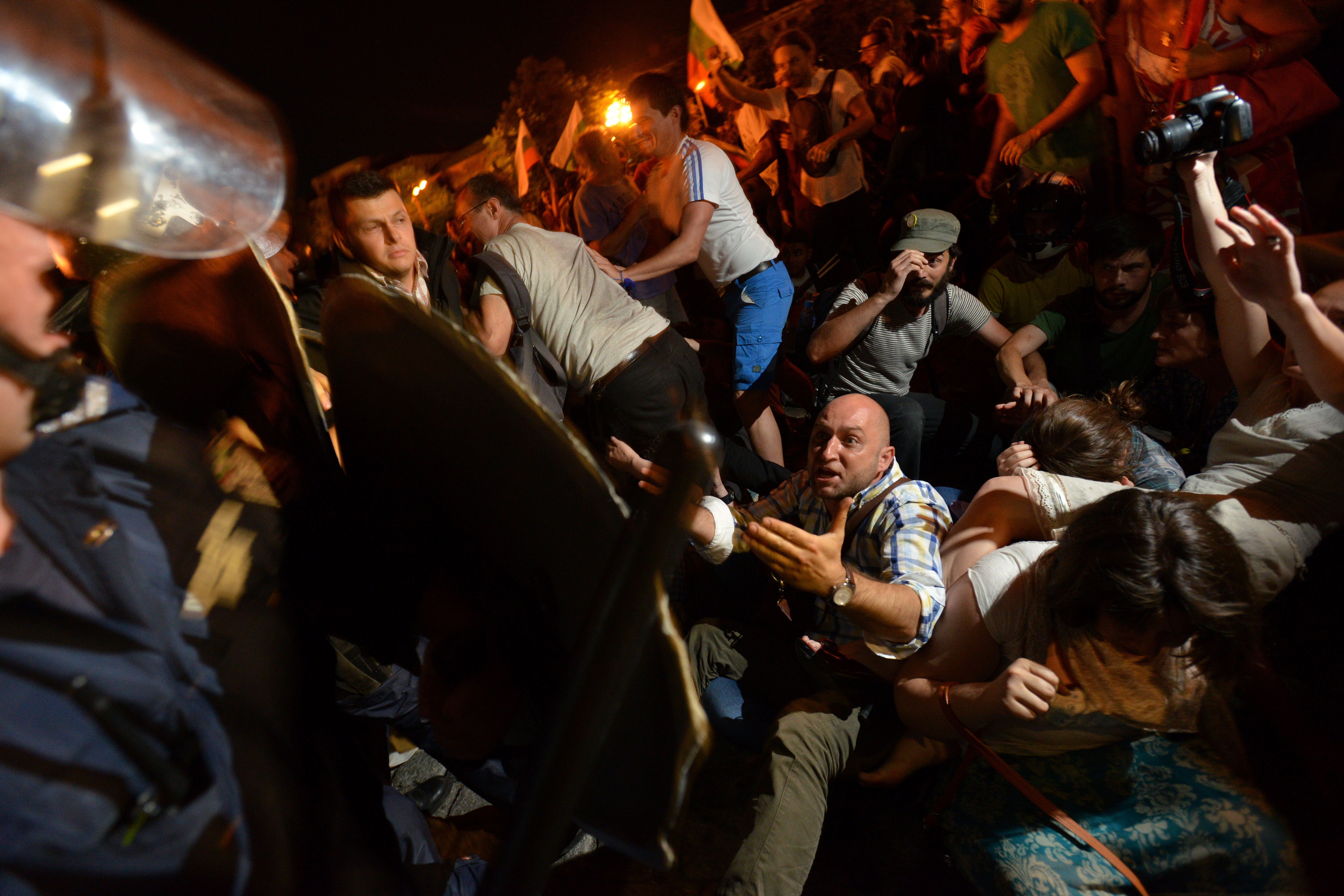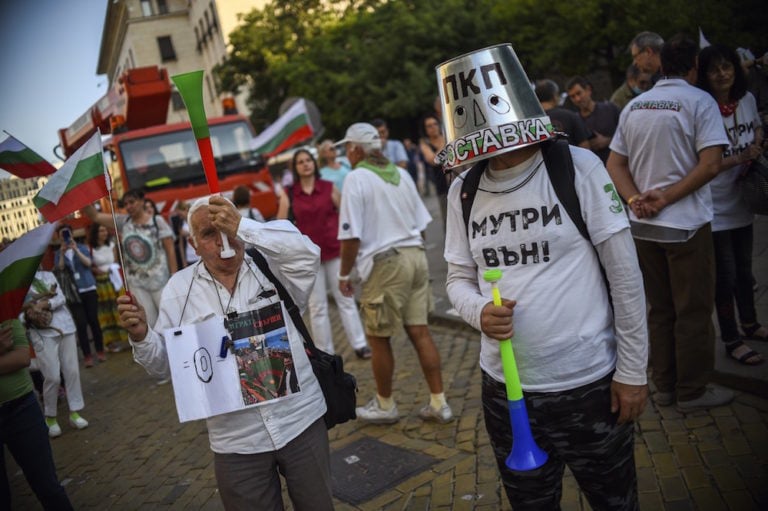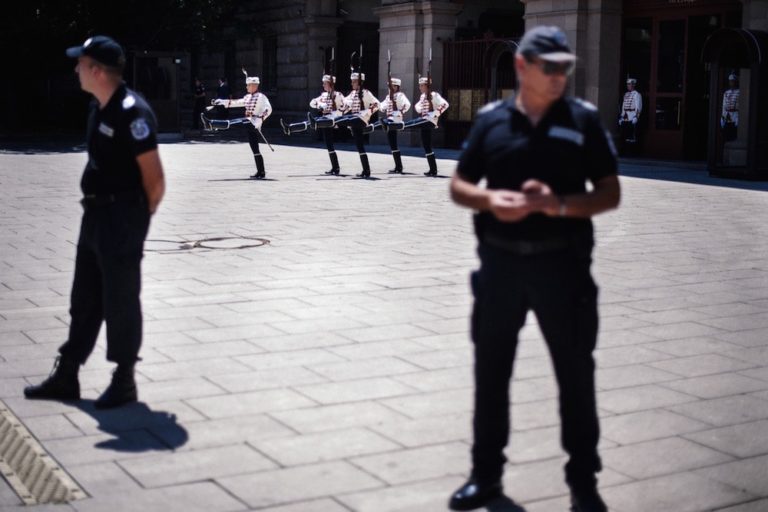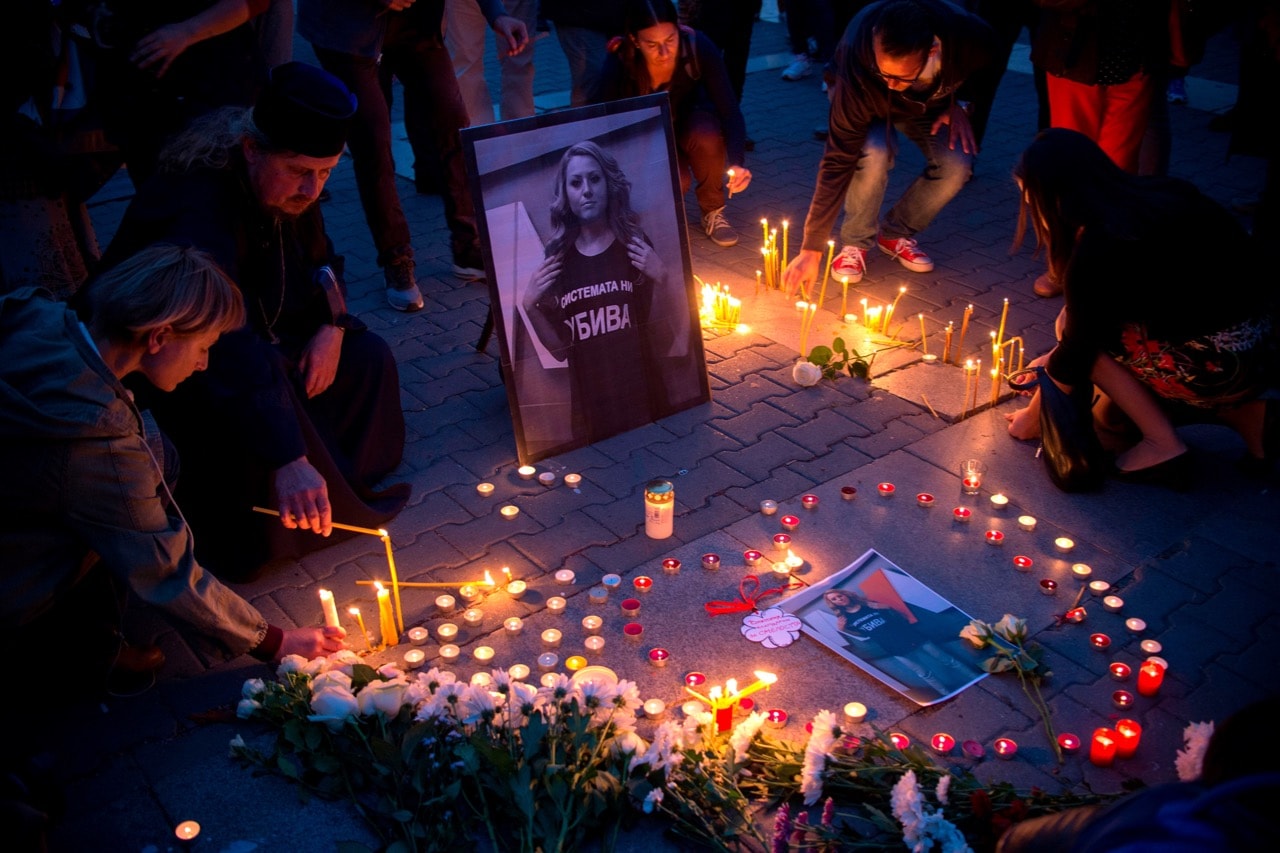The violent action by riot police came after 40 days of peaceful protests outside the parliament in response to a string of controversial appointments by the new government and wider concerns about corruption.
The Bulgarian government should open an investigation into police action during the violent clashes on the evening of July 23, 2013 outside the Bulgarian parliament that left 17 people injured, says Human Rights Watch.
Anti-government demonstrators blockaded the parliament building, preventing more than 100 ministers, members of parliament, and journalists from leaving. As police tried to evacuate the members of the parliament and officials by bus, protesters blocked the way. A representative of the Bulgarian Helsinki Committee, a local human rights organization, who witnessed the clashes, told Human Rights Watch that at approximately 10 p.m., riot police indiscriminately beat demonstrators with truncheons, hitting them with riot shields and kicking them. Some missiles, including stones and plastic bottles, were thrown, according to news reports. Police also beat five journalists.
“The disturbing reports that the police beat protesters and journalists call out for an investigation,” said Lydia Gall, Balkans and Eastern Europe researcher at Human Rights Watch. “Protesters should refrain from violence, and the police should exercise restraint and show tolerance toward people exercising their right to protest.”
One victim told the Bulgarian Helsinki Committee that she didn’t remember much about the beating by police, only that she “just blacked out” and her face was bleeding heavily.
The committee also documented violence against at least five journalists. Police beat them with truncheons, dragged them to the ground and kicked them, the committee said. Police destroyed one journalist’s camera.
According to Novinite, an online English-language Bulgarian news portal, 17 people were injured, including 5 police. The Bulgarian Helsinki Committee and news reports said that the Interior Ministry and Deputy Prime Minister Tzvetelin Yovchev had approved the police action.
The violence came after 40 days of peaceful protests outside the parliament in response to a string of controversial appointments by the new government and wider concerns about corruption.
Under international law, the use of force by law enforcement must be proportionate and serve an objective and legitimate aim. While the evacuation of the building was a legitimate purpose, and some force may have been necessary if missiles were thrown, reports of indiscriminate beatings of protesters suggest a disproportionate use of force and require independent investigation, Human Rights Watch said.
It is difficult to see any possible justification for police violence against journalists, Human Rights Watch said. The government has an obligation under human rights law to ensure that media and journalists can operate freely and without interference by the state. Such assaults on journalists put freedom of expression and media freedom at serious risk and require independent investigation and, where appropriate, disciplinary measures against those responsible, Human Rights Watch said.
The protests stem from political unrest that began in February when the center-right government collapsed following mass street protests against increases in utility bills. A new socialist government was formed after elections in May. Its appointment on June 14 of a controversial media personality and politician, Delyan Peevski, to chairman of the State Agency for National Security triggered a new series of protests.
Despite the subsequent cancellation of Peevski’s appointment by the prime minister and the parliament, protesters demanded the resignation of the new government over alleged corruption.
Two more controversial appointments further fuelled the protests – of right-wing leader Volen Siderov to chairman of the parliament’s committee on ethics and conflict of interests, due to his own alleged breaches of parliamentary ethics; and of Emil Ivanov, former mayor of Svoge and former regional governor of Sofia, over alleged links to organized crime.



